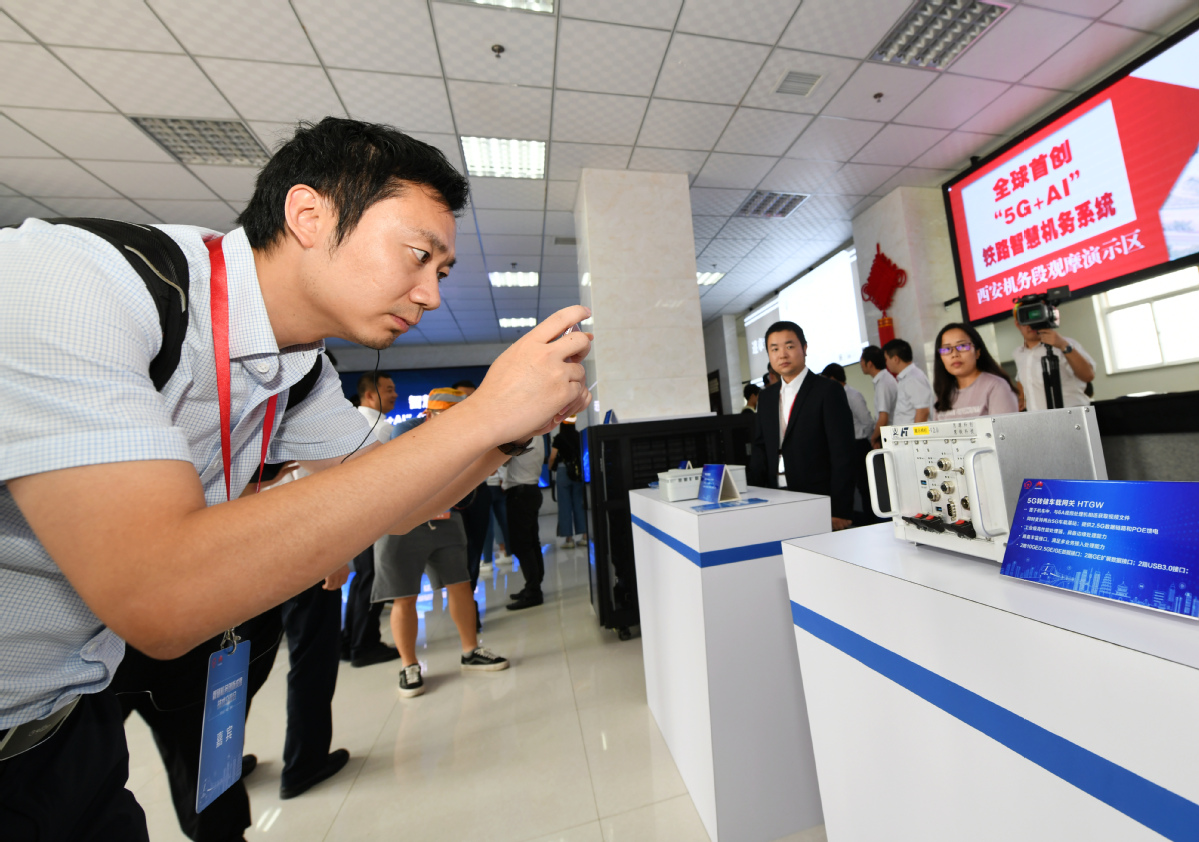Huawei will focus on universal access to its products
By Ma Si | China Daily | Updated: 2020-06-12 09:12

Technology giant Huawei Technologies Co is committed to providing "communication for all", regardless of the geographical location, remoteness of the location or how dangerous the places are, a senior company official said on Thursday.
Cristina Qu, vice-president of the public affairs and communications department at Huawei, said the company's name often reminds people of its cutting-edge smartphones. However, as a world-leading information and communications technology company, Huawei has a mission and responsibility that goes far beyond offering consumers smartphones.
"In over 170 countries and regions, we are ensuring that people have access to communication networks, be it in remote areas, or a home in crisis. We make sure that they are not alone," Qu said.
The company's strong sense of responsibility was well-demonstrated during the COVID-19 outbreak. Between late January and March, some of the company's employees were stationed in Wuhan, the capital of Hubei province, for 76 days to help build and maintain the 5G networks for local hospitals, so that ultra-high definition and low latency video transmission became possible to enable remote medical consultations and live webcasts.
To illustrate her point, Qu cited the experiences of her colleague, Nie Qiang, director of the network assurance and technology department at Huawei's Hubei representative office.
On Jan 23, when Nie learned from one of his friends that Wuhan was about to be locked down, he did not bat an eyelid before agreeing to stay put in his job.
"At that time, the number of new confirmed COVID-19 cases was rising every day in Wuhan and the epidemic was making headlines at almost every media outlet," Qu said, "But Nie knew that he had to stay and make sure that the network was fully operational in the city."
Nie and his whole team remained in their posts for 76 days. They were tasked with maintaining 5G networks in some of "the most dangerous places" in Wuhan, like Huoshenshan Hospital, Leishenshan Hospital, other fever clinics and makeshift hospitals, and the intensive care units in Jinyintan Hospital.
"They asked to work wherever needed and got the job done, despite the dangerous conditions," Qu said.
Wuhan was just one instance in the long annals of the company's quick responses to other unprecedented challenges. During the 2008 Wenchuan earthquake in China and the Fukushima nuclear disaster in Japan, Huawei employees were at the forefront to provide assistance and services to the affected people.
According to Qu, many of Huawei's employees have worked in hardship regions at some time or the other. Gan Yingkun, a Huawei employee born in the 1990s, for instance, volunteered to work in Africa shortly after he joined the company at the age of 22.
Gan was assigned to the Central African Republic as the general manager of Huawei's local office. At the time, the Central African Republic was in the middle of a war. In order to ensure the safety of its employees, the company moved its offices and dormitories to one of the safest buildings in the center of the capital. Despite this, bullets still found their way through the windows and walls.
"Gan eventually started putting his mattress on the floor so that he would feel safer while he slept. But he was committed and focused on getting his work done," Qu said.
When asked why many Huawei employees choose to work in African countries that are far from their homes, Qu said: "We see it as an opportunity to help some of the world's least developed and most poverty-stricken areas succeed through better access to communications services, online education and exposure to the rest of the world. The work may be hard, but it is worth it."
According to Qu, Huawei employees are present in every crisis-stricken, war-ravaged or dangerous corner of the world to do what they can help. "This is ingrained in our DNA," said Qu.
























